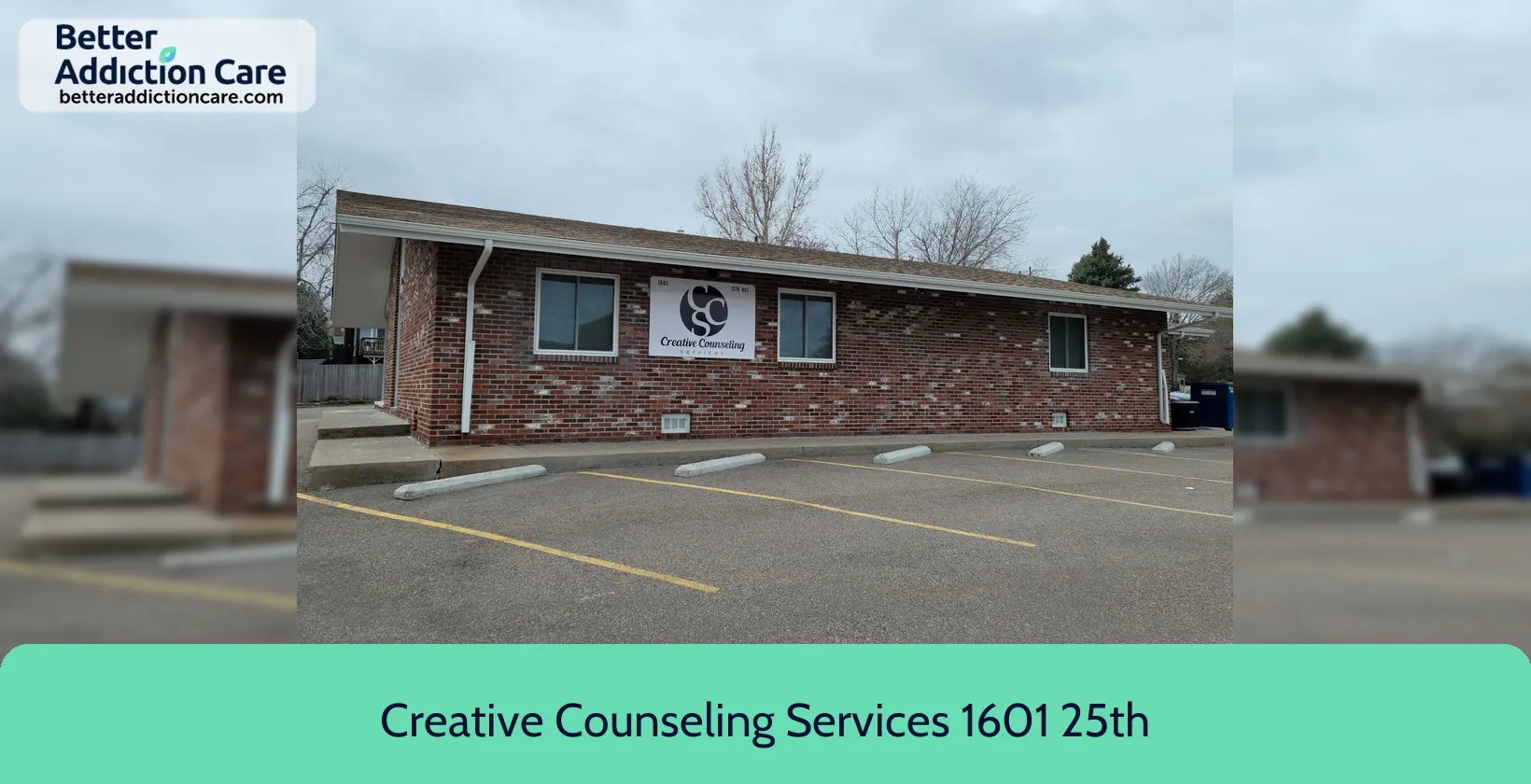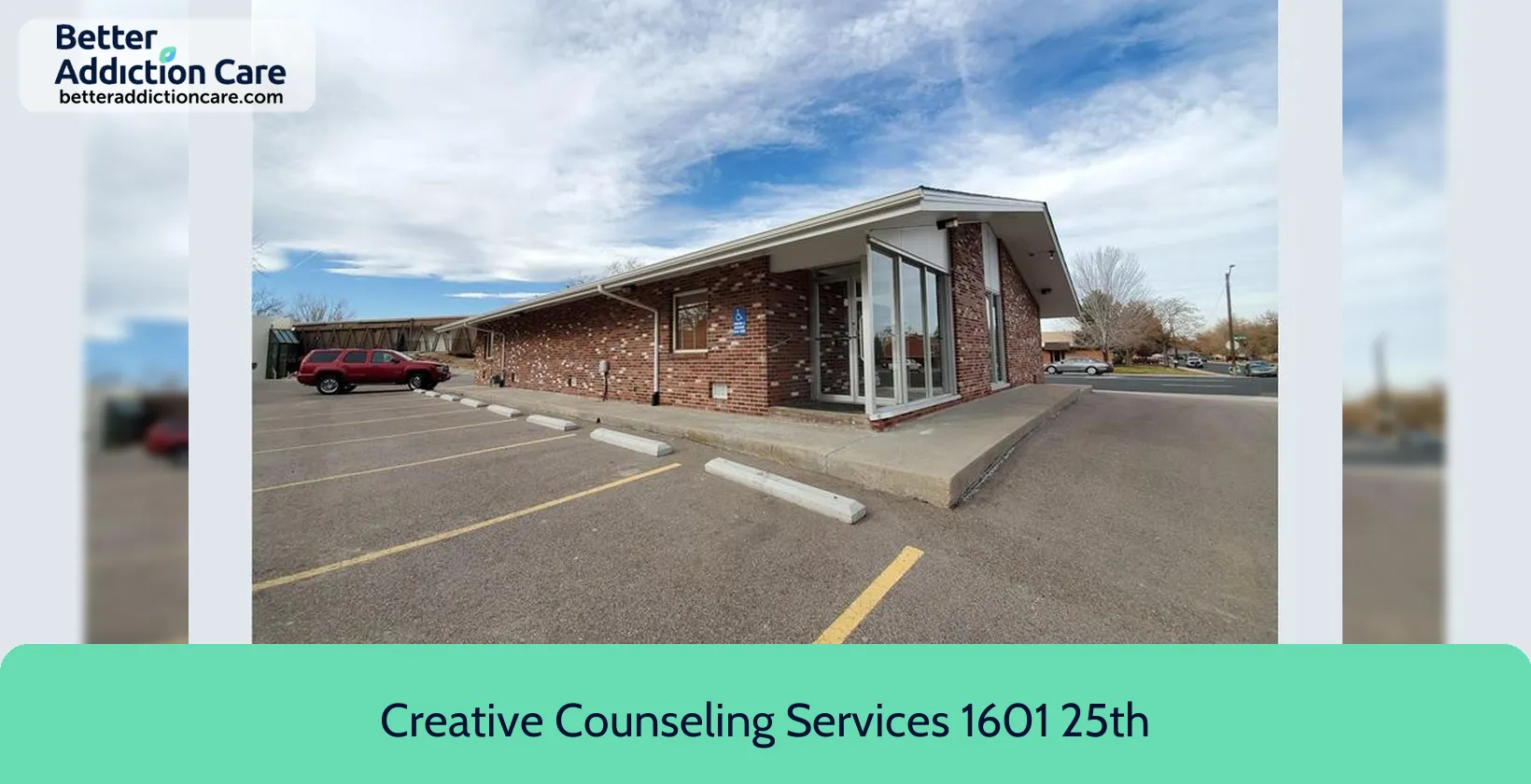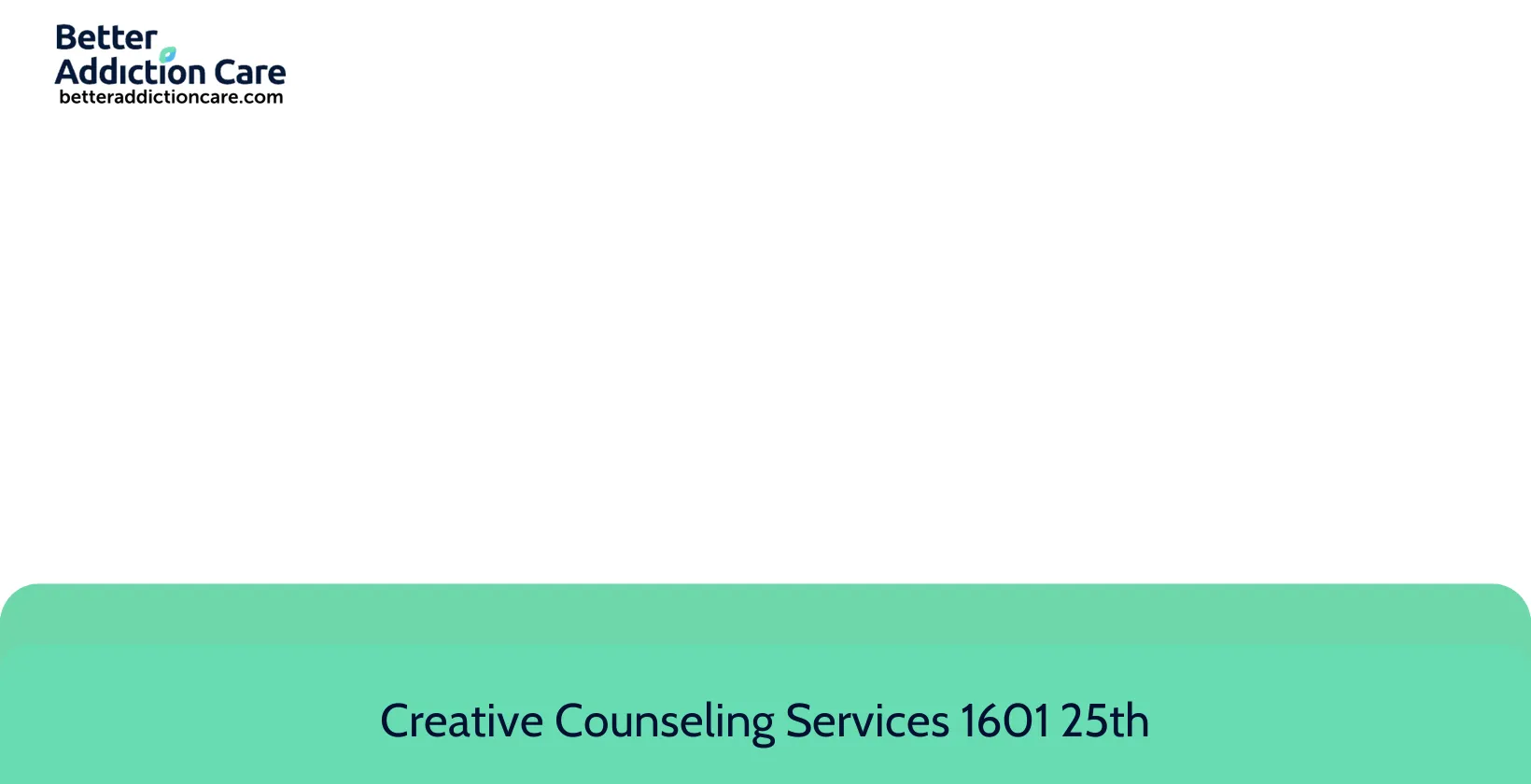Overview
Creative Counseling Services 1601 25th Avenue is a substance abuse treatment center for people seeking treatment near Weld County. As part of their treatment modalities for recovery, Creative Counseling Services 1601 25th Avenue provides cognitive behavioral therapy, telemedicine/telehealth therapy, and substance use disorder counseling during treatment. Creative Counseling Services 1601 25th Avenue is located in Greeley, Colorado, accepting cash or self-payment for treatment.
Creative Counseling Services 1601 25th Avenue at a Glance
Payment Options
- Cash or self-payment
- Medicaid
Assessments
- Comprehensive substance use assessment
- Interim services for clients
- Screening for mental disorders
- Screening for substance use
Age Groups
- Children/adolescents
- Seniors
Ancillary Services
- Case management service
- Integrated primary care services
- Suicide prevention services
- Specially designed program for DUI/DWI clients
- Mental health services
Highlights About Creative Counseling Services 1601 25th Avenue
6.80/10
With an overall rating of 6.80/10, this facility has following balanced range of services. Alcohol Rehabilitation: 8.00/10, Drug Rehab and Detox: 6.00/10, Insurance and Payments: 6.00/10, Treatment Options: 7.21/10.-
Alcohol Rehabilitation 8.00
-
Treatment Options 7.21
-
Drug Rehab and Detox 6.00
-
Insurance and Payments 6.00
Treatment At Creative Counseling Services 1601 25th Avenue
Treatment Conditions
- Alcoholism
- Substance use treatment
Care Levels
- Outpatient
- Regular outpatient treatment
- Aftercare
Treatment Modalities
- Cognitive behavioral therapy
- Telemedicine/telehealth therapy
- Substance use disorder counseling
- Trauma-related counseling
- Group counseling
Ancillary Services
Additional Services
- Pharmacotherapies administered during treatment
- Discharge Planning
- Breathalyzer or blood alcohol testing
Special Programs
- Clients with co-occurring mental and substance use disorders
- Criminal justice (other than DUI/DWI)/Forensic clients
- Clients who have experienced trauma
Contact Information
Read our Most Recent Article About Drug Addiction
DISCLAIMER: The facility name, logo and brand are the property and registered trademarks of Creative Counseling Services 1601 25th Avenue, and are being used for identification and informational purposes only. Use of these names, logos and brands shall not imply endorsement. BetterAddictionCare.com is not affiliated with or sponsored by Creative Counseling Services 1601 25th Avenue.











